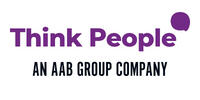If you were asked to think about team effectiveness or a high performing team, one that appears to consistently outperform expectation and work as one pure cohesive unit, what do you think of and why?
For me, I instantly think of sports teams and The Arts. In our current climate it is hard to look beyond the Ireland rugby team in the sports context for their passion, commitment, drive, cohesion and performance (maybe not beyond the quarterfinals but the least said about that the better) and leadership. When I say leadership, I do not mean the coach, coaching team and captain, I mean those players that stepped up and showed true leadership no matter their official role and the impact that has had on the team’s performance.
When I think of the Arts, I love a good ‘show’. And when you break that down, the team involved is immense. It is not just that the individual actors do a good job; its staging, lighting, music, costumes and make up, directors, producers, runners, the list goes on. If each person in their role does not play their part (whether onstage or backstage), at exactly the right time in the right way, the show effectiveness is impacted.
In both instances, the performance is built long before the event that we all see and assess. There is commitment, practice, process, refinement, and a lot of repeating to ensure the team and their approach runs smoothly.
Again, when we look at both examples, what makes the team stand out as exemplar is cohesion, living, moving and breathing as one entity, changing approach with a signal or code – or even silence, the team just know what is needed and it gets done. Everyone has personal commitment to getting the job done;f someone misses a line someone else picks up, if there’s a pass that doesn’t quite go to plan someone will pick that stray ball up. They are in it to win together. They are passionate, committed, know their end goal and what its going to take to get there and every single person is there to ensure that happens.
For decades we have read, studied and discussed theories of ‘team’ such as Kazenbach and Smith (1993) and Tuckman, or studies such as Project Aristotle at Google. All of these theories, models and research help inform what we need to consider when analysing teams however what makes a team is more than mechanics and process. Culture, passion and heart are what sets teams apart. David Burkus wrote for the Harvard Business Review in August 2023 in an article entitled “What Makes Some Teams High Performing”. In that article David states that three core elements that make a high performing team are: common understanding, psychological safety, and Prosocial purpose. This report demonstrates the changing tide or the changed tide, in how we need to develop our teams and demonstrate clear direction, a psychologically safe environment a job within an organisation that have a clear purpose to achieving something positive and having a positive impact.
Whilst for some this will ring true as to how their teams and organisations currently interact, for others, this might seem like we Organisation Development enthusiasts have devised our own language. The 5 key take aways that can help you decode this, potentially new to you, language and apply the approach to your work, team and or organisation are:
- From your most senior employee down, everyone should know and understand your company’s vision and purpose but also the strategic direction and how everyone plays their part. This requires clear definition of direction, clear and understood communications, strong management interactions and performance management that aligns with the business.
- To create a psychologically safe working environment there are many elements to think about. Are your employees equipped to have truly open, honest, and productive conversations? Would people within your organisation benefit from having a Coach or would a team benefit from team coaching? Are your manager and leaders promoting, living, and walking the walk of a psychologically safe environment? These are key questions to consider.
- Does everyone understand and truly live the values of your organisation? If not, how can you take positive action to change that?
- Does your organisation truly listen to its employees and act appropriately on feedback?
- Articulate and celebrate why the work you do matters. Be proud of it, know and understand its impact. And where the impact may not be as positive as you would like, make a plan, take action and make a positive change.
There are other bespoke or specific actions that we can all take to hone and refine this for our own teams, however if we can be honest in our assessment of how we currently work and make any positive changes required, we can ensure we are all working to achieve a high performing state through our teams.
We will explore this fascinating topic in more detail at our upcoming webinar; “Team Development: By design or by accident?” on 16 November. Think People’s Louise Quinn will be joined by a panel of experts to provide insight into why a strategic, designed approach to team development can benefit the entire organisation, with examples from their own careers.
Register for our free webinar here: https://www.eventbrite.co.uk/e/team-development-by-design-or-by-accident-tickets-738149193107?aff=oddtdtcreator
